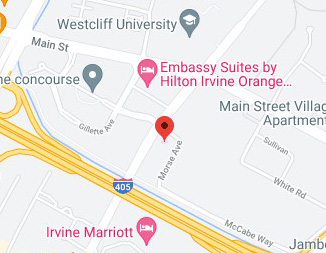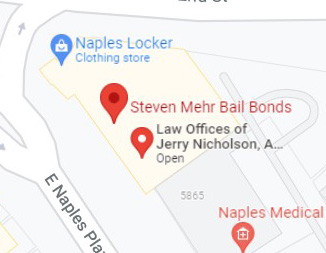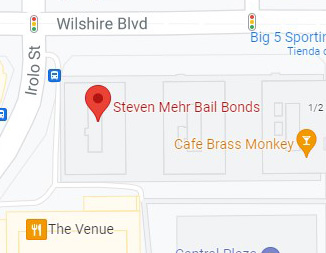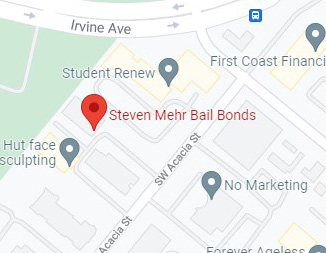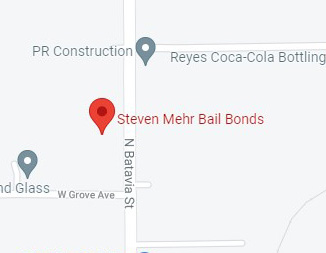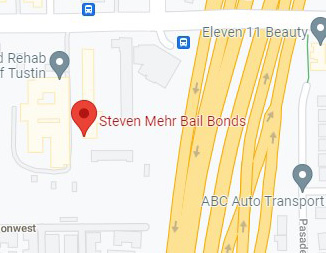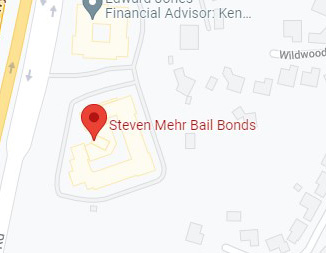The most unpredicted events in daily life are arrests. If you or a loved one are in custody for a crime, you must secure a short-term relief from jail by posting bail. However, the bail process isn’t easy, and you might not be successful if you don’t work closely with experienced bail bond services at the beginning of the case. Steven Mehr Bail Bonds is among the most reliable and trustworthy bail services in La Habra you can work with.
What is the Meaning of Bail?
Bail is the money the court asks you to deposit with them in exchange for being set free from jail pending prosecution. This deposit aims to ensure you show up for your scheduled court dates.
Mostly, you should be released by a judge on your own recognizance, otherwise called O.R release, which doesn’t require you to deposit any money in court. Instead, all you must do is promise in writing to attend all your court hearings until the case is closed.
However, you must understand that there is no guarantee for bail because if your offense has specific characteristics or is linked to a particular crime, the judge has the discretion to deny it. But, again, most of the time, the court grants bail.
The bail money varies from one crime to another and depends on your county because different counties rely on varying bail schedules to determine this amount. For example, in Orange County, you will be released on O.R unless the underlying offense is a severe or violent felony.
However, being set free without bail doesn’t mean you don’t have conditions that you must comply with. The court sets forth several requirements that must be fulfilled during your pretrial release. These are:
-
Installation of an IID if you face a DUI charge
-
Mental health examination and treatment
-
Alcohol addiction or abuse treatment program
-
Drug abuse treatment
-
Regular check-ins with your selected agency via phone, text message, or online
-
Random substance and alcohol tests
-
Travel restrictions like being ordered to surrender your passport or not to leave California
-
Attending community support groups
-
House arrest
-
Electronic monitoring
The law bestows judges the discretion to grant or deny bail, which allows them to increase or reduce the bail money provided in the schedule. Their decision is dependent on your record, flight risk, and your case’s nature or facts.
Note that because arrests are unforeseen and you might not have set aside money for an event like this, it’s critical to work with bail bond services if the judge grants bail. Again, even when you can raise the cash bail, you are encouraged to rely on bail bond services because the money might be held as evidence if the prosecutor suspects it’s a crime proceed.
Similarly, paying bail from your pockets might strain your finances, making it challenging to hire the best legal minds in La Habra, CA. However, if you work with your La Habra bail bonds, they will post this money on your behalf and allow you to use your savings to retain the best legal team for your case.
The Process of Paying Bail
There are three main ways your La Habra Bail Bonds service can post bail on your behalf. These are:
-
Via cash bail
-
Via a bail bond
-
Via a property bond where the court attaches a claim on the property so that when you skip bail, the court has the authority to commence foreclosure proceedings on the property
-
Meaning of Cash Bail
For a cash bail to occur, you should deposit the total amount set by the court with the court’s clerk or the law enforcement agency that made the arrest. You may be asked to pay in cash, bank cashier’s check, money order, or personal check subject to the court’s policies. In the event you show up for the hearings as agreed, this amount will be refunded sixty to ninety days after the case’s conclusion. However, failure to appear means you forfeit this amount.
Suspicious Bail
Posting bail in cash has a share of its shortcomings because if there is a reason for law enforcement authorities to believe the bail money was obtained from felonious activities, they will suspend your pretrial release and set a date to decide on the matter. For purposes of this case, felonious means you obtained the bail money from illegal transactions or an event that amounts to a felony.
The burden of proof now shifts from the prosecutor to you because you must prove the money has not been obtained through felonious activity. If the court is convinced the money was obtained legally, you will be released on bail, although you might have spent more time in jail than if you had contacted your La Habra bail bonds service to post bail via bail bonds instead of going the cash way.
However, if you cannot convince the court the bail money has been obtained legally, it won’t be accepted, or if they grant it, they might increase the amount.
Courts take the source of cash bail seriously because they know if the money used to post your bail is a proceed of the baseline or previous crime, you won’t feel any pain to skip court because of the little expense. However, it becomes difficult to skip bail if it’s your hard-earned money because you don’t wish to forfeit the amount. Therefore, even when you can raise the cash bond, you should go through your bail bonds agency to maintain a low profile and prevent a hold or cancelation of your bail.
How Do Bail Bonds Work in La Habra?
With the tough economic times, it might not be a cakewalk for many individuals to raise the cash to post bail, which is the point where bail bonds come in.
Keep in mind that there is a difference between bail and bail bonds. With bail, you can post the money or collateral in person to secure your release. However, with bail bonds, you must rely on your La Habra bail bonds to deposit the amount with the court clerk or arresting agency on your behalf.
When it comes to bonds, obtaining one will take an average of twenty minutes, but after securing the bond, it takes up to four hours to be freed from detention.
Bail agencies or bondsmen deposit the bail money on your behalf, and in return, they charge a disposable fee set at no more than 10% of the sum of the bail money in California. However, if a reputable attorney represents you, you are a government employee, a member of the military, or the individuals as mentioned earlier who cosign your agreement is immediate family, then you can obtain a discount for this premium fee.
Note that if your matter isn’t concluded within a year, you may need to renew your premium fee because many bond agencies have contracts that lapse within a year.
Your La Habra bail bonds agent will not just post bail without assurance that you won’t miss court. Therefore, they will need collateral, which refers to an item’s value that you can offer the bondsmen an incentive or assurance you won’t be skipping court. And if you indeed miss court appearances, the agency will seize the property or asset and auction it to recover the amount they had deposited in court but have been forfeited.
Duties of a Cosigner
You become the cosigner when you post bail on behalf of a loved one via a bail bonds agency. So, you assume the responsibility of ensuring that the offender appears in court as scheduled, regardless of whether you are the person that raised the premium fee or you contributed the money to bail out the defendant.
Failure to appear in court by the defendant will see your bail bonds agency send a bounty hunter on the defendant. If their efforts to trace the defendant are futile, they will come after you to seek compensation or recover the bail money the court forfeits due to the defendant skipping court.
What Happens When You Skip Bail?
When you or the defendant don’t show up in court, the court forfeits your bail and may perhaps issue a bench warrant. If you had paid the bail in cash, you wouldn’t obtain a refund. However, when your bail agency posts bail, they will seek compensation from you, as the defendant, first, and if they are unlucky to find the defendant, they will go after the cosigner to claim reimbursement.
A judge issues a notice of forfeiture first before they forfeit your bail. When the notice is issued, you have to appear in court within one hundred and eighty days and offer substantive reasons for not showing up in court. The valid reasons you could give for not appearing before a judge include:
-
You have a disability
-
You had a severe health condition
-
You weren’t in the right state of mind for a trial
-
You were detained in police custody in another jurisdiction
It’s worth noting that if you obey the court schedule and the matter is concluded, the court will release your bail money. Exoneration occurs if:
-
The case is closed
-
The judge orders you to be placed in a drug diversion
-
The court rules you are unfit for trial
-
You were committed to custody as a result of an adverse ruling.
Also, cash bail is used to cover some of your fines and penalties if you are convicted for the crime after the case is concluded.
Crucial Information Associated with Bail Bonds
The bail bond process involves three major stages, which are:
The Apprehension Phase
An apprehension occurs when law enforcement officers receive a hint that or find in you in the act of committing a criminal activity. If there is substantial reason to believe that you committed a crime, you will be placed under arrest and later be booked in the sheriff’s office, police custody, or correctional facility.
The Booking Process
The arresting officer must take you through the booking process after an arrest to create a valid and legal record for the apprehension. The phase entails a lot of activities or steps like confirming your identity, recording your information like the name and address, recording details of the alleged offense, capturing and recording fingerprints, taking your picture, and running background checks to establish your criminal history and whether you have pending cases even in other jurisdictions.
Bail Hearing
While in police custody, the court should set a date when your bail is to be heard. During the hearing, the judge can decide to release you on O.R., set a bail amount for your release, or deny bail. At this phase, the court will discuss whether or not you are eligible for bail and the amount you should pay.
When setting the amount, the judge can opt to stick to the standard amount provided in the bail schedule for your crime, increase or decrease the amount, or deny bail. The judge’s decision is informed by several factors, like the severity of the offense. For example, if you have committed a homicide or rape, the judge will deny bail.
Also, the court considers the impact you will have on society upon your release. If they still consider you a risk to the public, the bail amount will be set too high to make it challenging to afford the money.
The court will set a high amount of bail if the case you face is serious, and you will likely skip town before the hearing. If you pay this hefty amount for your release, you will be afraid of not showing up in court because this will translate to your loss of the bail amount to the court.
Lastly, the California bail schedule will determine the amount you pay as bail. The schedule lists various crimes and the various amounts you should post as bail for the various categories. However, the judge has the discretion to increase or decrease the amount based on the case’s characteristics.
La Habra Jail & Court Information
La Habra Jail
Orange County Superior Court
Find a Bail Bond Agent Near Me
It may be true that an arrest is an unforeseen event in life but it is common, and you must be prepared for it. If you aren’t sure about the agency to hire, Steven Mehr Bail Bonds in La Habra, CA, can assist you to obtain freedom. Call us today at 800-834-8522 for a zero obligation case analysis.





